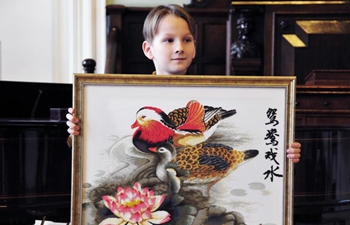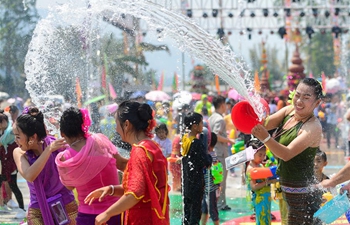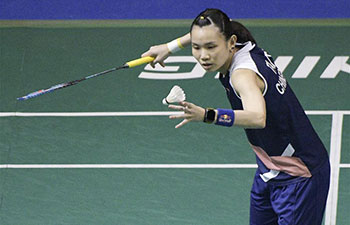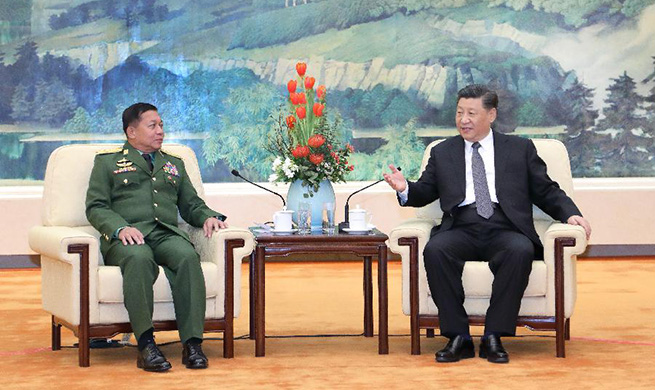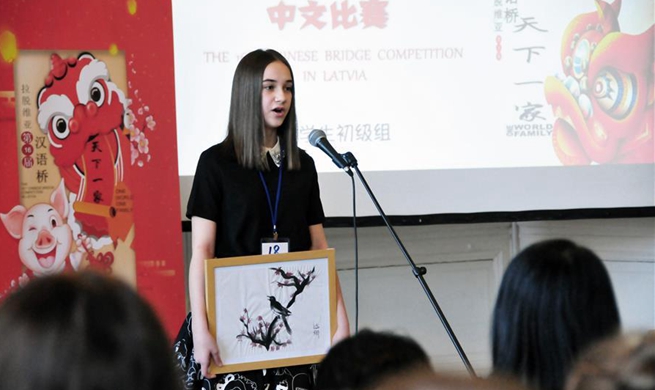URUMQI, April 13 (Xinhua) -- The happiest thing for Urziashim Usur, 58, is when he is making traditional Xinjiang stamped cloth with his family.
As a staff member of the culture center in Yengisar County, Xinjiang Uygur Autonomous Region, Urziashim performs traditional cloth stamping, a 1,000-year-old Chinese intangible cultural heritage.
People in Xinjiang have been making stamped cloth as a tradition for centuries, using self-made wooden stampers to print various patterns such as flowers on white fabrics. The tradition is perishing due to the substitution of textile products in the market.
"Although traditional stamped cloth is not used as widely as before, with the cheap machine-made fabrics gaining popularity in the market, it has its own charms," Urziashim said.
Various plants are used as dyes in traditional cloth stamping including pomegranate and lotus, which prevents cloth fading for decades, he added.
Urziashim has sought and bought more than 200 centuries-old stampers around Xinjiang in an attempt to preserve the cultural heritage.
"I bought them at the price of 50 yuan (7.4 U. S. dollars) for each stamper from peasants who were not aware of the cultural and historical values of them," he said.
"It is sad to see the traditional culture dying."
Urziashim used to teach his apprentices how to make the stamped cloth, but they stopped making them because it was not profitable.
"Young people do not understand the value of traditional stamped cloth, and some even consider it outdated," he said.
His wife, Anaguri Musa, 51, has become a new apprentice, helping him preserve and improve traditional stamped cloth.
"Making the stamped cloth was very interesting, and it was amazing to see these beautiful centuries-old patterns reemerge on cloth with my own hands," Anaguri said.
His youngest daughter, Aranur Urziashim, 15, also studies the craft with her father.
"The traditional stamped cloth is a valuable heritage, which should not disappear in my generation," she said.
In 2006, Xinjiang traditional stamped cloth was listed as a national intangible culture heritage. Urziashim was granted the title of "inheritor" of the traditional stamped cloth in 2018.
"The support from families and government gives me strength and confidence to protect the traditional craft," Urziashim said.




